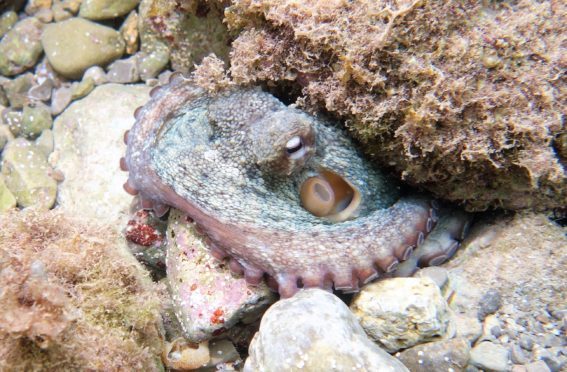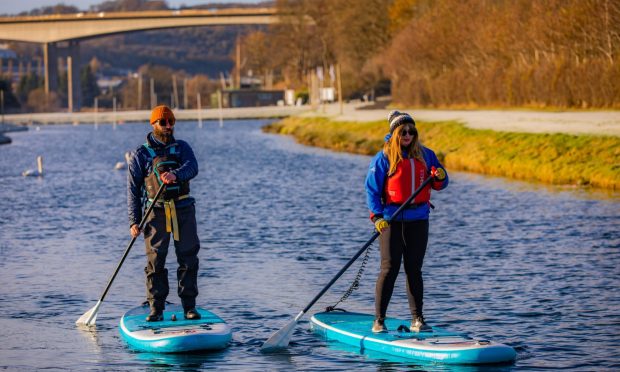It’s those eyes, the large intelligent eyes that are so striking, a piercing concentration that made me wonder whether this octopus was pondering a dilemma; should I stay still and rely on my camouflage for concealment, or perhaps better to make a dash for deeper water?
Well, it decided to stay put by this little rocky hollow in the Mediterranean, which enabled me to hover over the creature and take some photographs with my underwater camera. Strangely, I had seen another octopus the day before, which is unusual, for in all my years of snorkelling they are animals I seldom encounter.
This is not because they are especially rare, but more due to their ability to change body colour to match their surroundings; an underwater chameleon if you like, and a bit of contortionist too, being able to squeeze into the smallest of crevices.
Those eyes kept on scrutinising me, and from under one corner of the rock a groping tentacle slithered out like a snake, caressing the seabed, feeling and probing; perhaps exploring a potential escape route from this strange four-limbed beast with snorkel and mask floating above.
The octopus is said to be the most intelligent of all our invertebrates, with studies showing they’re capable of solving simple puzzles – for example, being able to twist open screw-top jars with food inside or navigate through mazes.
Disturbing wildlife is never my want, so it was time to leave the octopus in peace, and with a flick of my flippers I glided away over the rocks of this little bay in Mallorca and straight into a shoal of glittering salema, a type of sea bream, their burnished yellow-striped flanks catching the light every time they twisted and turned.
There was so much else to see too, from ornate wrasse with their astonishing tapestry of blues, yellows and greens, to more genteel fish such as rusty blennies and shoals of flashing mullet.
Snorkelling in the Mediterranean is like a homecoming to me, a place I feel so at ease in. The Mediterranean is an unusual sea because it is almost completely enclosed by land, which results in a wide range of environmental pressures caused by humankind, including pollution.
The Suez Canal in the eastern part of the basin has also provided a convenient artery for fish to colonise from the Red Sea – a totally different faunal region, and goodness only knows what impact such incomers will have on indigenous Mediterranean species.
I saw two more octopuses during my short break in Mallorca and on my last day I was lucky enough to spot a cuttlefish, a relative of the octopus, and a creature which took this inherent ability to change colour to an entirely new level. As I followed it over the seabed, it turned pallid over sand and by rocks suddenly much darker. It was like the flicking of a light switch and I could only marvel at such evolutionary perfection.










